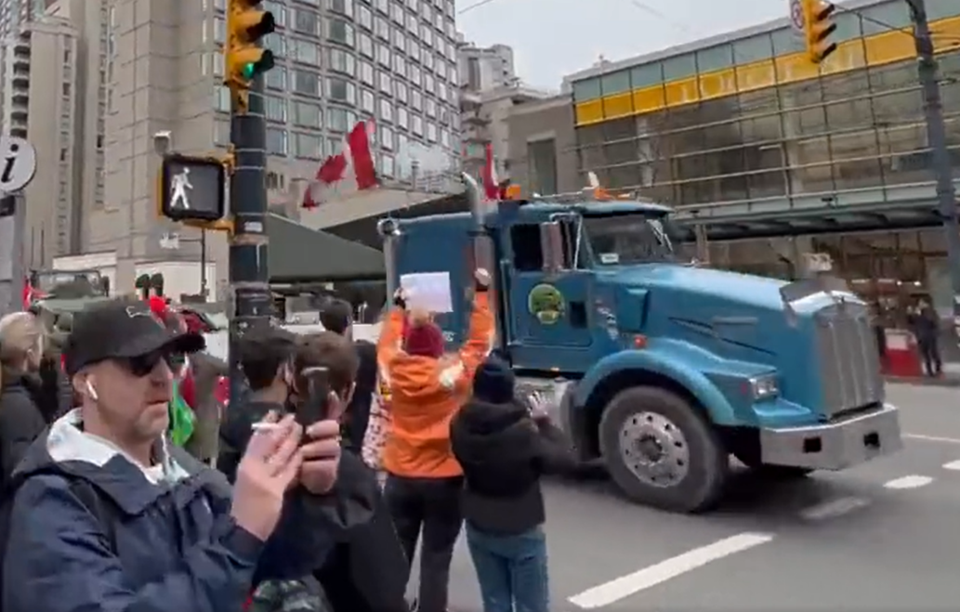There is no question the anti-vaccine mandate convoys and associated protests have become more than annoying for most Canadians, but do not underestimate their potential to shake up federal politics.
The alt-right movement and its extremist Trumpian views have largely taken over the convoy movement, which have attracted the support of a number of federal Conservative MPs (including leadership candidate Pierre Poilievre).
A recent Abacus Data poll showed that 25% of Liberal voters and 23% of NDP voters said they had a “lot in common” with those involved in the convoys. That should be of concern to those two parties as they understandably condemn the actions of the blockaders.
As for anti-vaccination protest rallies, I have covered four of them at the B.C. legislature, where several thousand people have gathered each of the last four Saturdays (a convoy is part of them, although many of the vehicles that circle the legislature grounds are not trucks).
Judging by their signs, speeches and overheard snippets of conversation at these rallies, it seems to me there is no single unifying issue or theme that brings this crowd together. Rather, there are a smorgasbord of complaints in play.
There are the hardcore anti-vaxxers, of course, but there are many who are genuinely opposed to vaccination mandates and other public health measures.
For many others, it is a shared hatred – and I use that word deliberately – for Prime Minister Justin Trudeau.
Then there are the conspiracy theorists, who subscribe to delusional and crackpot websites that espouse crank science and promote bizarre falsities like insisting the COVID-19 vaccine is really a secret plan by Bill Gates to put a microchip in billions of people.
A number of people seem to be angry at the world, particularly institutions like elected governments and politicians, as well as the media.
In short, they seem disenfranchised, alienated, frustrated and fairly right-wing. They also are not particularly democratic (the Canada Unity organizers of the convoy have released a “manifesto” calling for Trudeau and his government to be forced from power).
Finally, strong religious views are constantly on display. The word “God” appears on many protest signs, as protesters say they listen to God and not Trudeau, and that only God tells them what to put in their bodies.
These convoys and rallies may die on the vine over the spring and summer, or perhaps they won’t. But it appears that a new political force (to be sure, one that represents only a minority of the population) has been unleashed, at least for the time being.
The question is, will it shake up the political arena in ways that go well beyond border blockades and loud trunk-honking protests?
It would seem the federal Conservatives have the most to fear from this uprising, since they share the most common ground with them. If they fully embrace the convoy movement, the party will drift to the hard right, which would alienate many of its supporters.
But the blockaders appear to have also dealt a serious blow to Trudeau’s popularity, not because people agree with the blockaders’ views on things, but because he (and other political leaders) seem incapable of dealing with this crisis.
If this convoy movement spreads to other countries, as has been speculated, it will likely breathe even more life into the one here. Which means all this may yet turn into a proverbial “long hot summer” of discontent.
Keith Baldrey is chief political reporter for Global BC.



